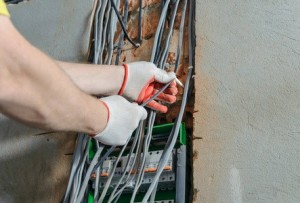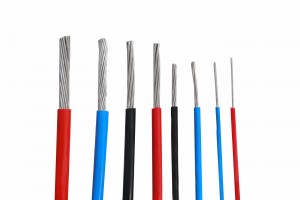Aluminum and copper are two commonly used conductive materials for electrical wiring. Each has its own advantages and disadvantages, and the choice between aluminum and copper wire will depend on various factors such as cost, conductivity, weight and application.

One of the main advantages of aluminum wire is its lower cost than copper wire. Aluminum is more abundant and cheaper to produce than copper, making it a cost-effective choice for large electrical installations. Its affordability makes it a popular choice for commercial construction and industrial applications.
However, copper wire has a significant advantage in conductivity. Copper is an excellent conductor of electricity and offers less resistance to the flow of electrical current than aluminum. This means that copper wire has a lower voltage drop and is generally more efficient at transmitting power. Copper wire is often preferred where high electrical conductivity is critical, such as residential and commercial buildings.
Another factor to consider is the weight of the wire. Aluminum wire is lighter than copper wire, which can be advantageous in some situations. For example, the lighter weight of aluminum wire can be beneficial when running longer wires or when weight is a constraint. It is often used on overhead power lines, where its lighter nature helps reduce stress on the supporting structure.
However, there are also some disadvantages to using aluminum wire. A significant disadvantage is the potential for increased thermal expansion compared to copper wire. Aluminum has a higher coefficient of thermal expansion, which means it expands and contracts more when its temperature changes. This can lead to issues like loose connections, overheating and a higher risk of fire. Therefore, special care must be taken during installation and connection to ensure proper thermal expansion management.
Additionally, aluminum wire has historically been associated with a higher electrical fire risk due to its greater resistance to electrical current. The oxide layer that forms on the surface of the aluminum increases electrical resistance, can cause overheating and pose safety concerns. To mitigate these risks, connectors and mounting techniques specifically designed for aluminum wire are required.
In recent years, advances in aluminum conductor technology have improved their performance and safety. These improvements include the development of protective coatings and specialized connectors designed for aluminum wire. However, in certain critical applications where safety and reliability are a priority, copper wire remains the preferred choice due to its superior conductivity and established track record.
In short, the choice of aluminum wire and copper wire ultimately depends on the specific requirements of the electrical installation. While aluminum wire has advantages in terms of cost and weight, copper wire offers superior conductivity and reliability. Factors such as budget, application, and security must be considered when making a decision. Consulting with a licensed electrician or electrical engineer can help determine the best options for each unique scenario.
Email: sales@zhongweicables.com
Mobile/Whatspp/Wechat: +86 17758694970
Post time: 2023-08-18






